Ain't That Always The Way - Alan Horne After The Sound of Young Scotland 2
by Grant McPhee
published: 8 / 11 / 2022
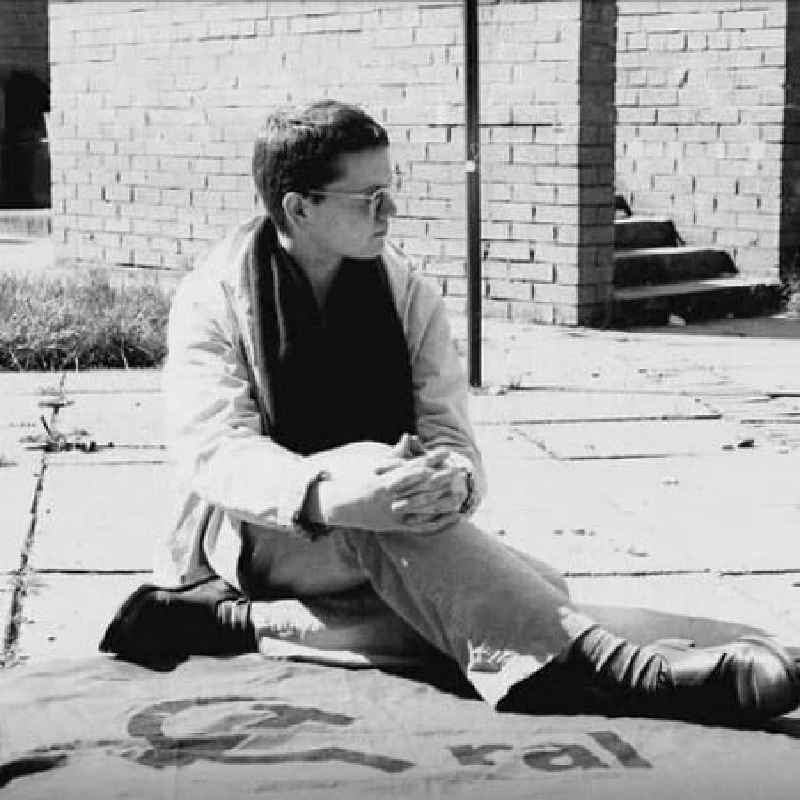
intro
In the second part of his feature on the latter career of indie record label owner Alan Horne, Grant McPhee looks at his resurrection of Postcard Records twice, firstly in the early 1990s and again in 2021
POSTCARD 2 The Phantoms and the Archetypes Eleven years after Postcard last released a single...Enter Postcard Records..... It is 1992. Edwyn Collins and Alan Horne are being interviewed by Gary Crowley for a television programme on a Glasgow Street. Gary: Why start this up again? Alan: “I had an album by Paul Quinn to get released and I thought it would be more effort to go onto a multi-national and fight with them than do it myself...so I just decided to start it all up and do everything myself” Gary: As far as releases are concerned you've initially gone with a couple of compilation albums, let's bring Edwyn into this: As the camera starts to pan off Alan and onto Edwyn, Alan can be heard desperately pleading: “No, no we haven't....” Edwyn: Well, I've got a different slant on the story. The reason Postcard was resurrected was to do the ‘Ostrich Churchyard’ album then Alan took it from there with Paul Quinn, though I'm not really involved with anything other than the Orange Juice compilations. One of independent music’s biggest surprises was the early 90s resurrection of Postcard Records. “It was like he was there again. What's the opposite of evaporate? Whatever that is, he just appeared again in Glasgow. He had a flat up behind Hillhead Station, just up by the Uni. And it was like Postcard Records central.” - Davy Henderson “I remember Alan doing the ‘Ostrich Churchyard’ album on his varnished floor as we were working there on the Paul Quinn album” - Bobby Bluebell For anyone watching the interview it is a nice surprise to see a very healthy and happy looking Alan Horne. What happened in his post-Swamplands intervening years is a story for another time. From his first few public utterances since his absence it is clear from the subtext in his comments that he was battered and bruised from his major label experience, so much so that he chose to go to his safe place, back to where it all started and try and follow that original Postcard template again. He chose to surround himself, much like at Swamplands with familiar faces – obviously Edwyn but also again with James Kirk, James King, Davy Henderson, Bobby Bluebell and Campbell Owens. Either through loyalty or security – or a mixture of both - Alan would always appear more comfortable being surrounded by the familiar. Despite Edwyn and Alan's disagreement over why they restarted Postcard it is a fact that the first revived Postcard catalogue number was given to Paul Quinn (DUBH 921) and the second to Orange Juice (DUBH 922). The last days of the original run of Postcard were spent pursuing a Paul Quinn fronted Jazzateers album and as the entire reason d'etre of Swamplands was to make Paul a star it seems fitting that MK2 was to attempt to relaunch Paul, again with Edwyn in tow. It's debatable how much Alan may have truly believed in a revived Postcard but from the Swamplands experience there is little doubt regarding how much he wanted to realise his vision for Paul and clearly saw the Postcard brand as the most effective and simplest way to achieve this. The genesis of the first Paul Quinn album, ‘The Phantoms and the Archetypes’ really is the genesis of Postcard MK2. It was recorded at CaVa, the basement of a church in Glasgow, mostly recorded live and produced by Edwyn himself. Musicians and songwriting – credited to The Independent Group, include contributions from James Kirk, Bobby Bluebell and Campbell Owens. It is not an overstatement to proclaim this as one of the finest albums of the 1990s – dense, dark, mysterious, lavish and epic. Credit for fully and finally realising this remarkable vision of work really needs to be given to Alan. His instincts and obsessive attention to detail, and most especially the tenacity to stick to his foresight elevate it far above what else came out that year. There really was nothing like it then or even now. It is an album which through its eventful and painfully long journey, by that nature has meant it sits apart from even Paul's own peers. As we will see shortly the entire idiosyncratic approach to this individuality would be one of the reasons for its lack of commercial success. By 1982, Postcard in its original form was clearly aiming its sights beyond shambling, angular or quirky 'indie pop'. There appears far more of a lineage from the last Aztec Camera single to the sophisticated pop of The Blue Nile or even to the blue eyed soul of Wet, Wet, Wet and Deacon Blue than there is to C86; whose jangly, lo-fi pop is often prescribed to having originated with Orange Juice. ‘The Phantoms and the Archetypes’ was grandiose in scale and ambition and any prior release or attempt at an album by Paul Quinn would likely not have achieved this to the same degree. While it can sonically seem to have followed in the direction Postcard likely would have originally taken, it is a sum of its greater parts. It is full of the bruisings Alan, Paul and Edwyn too faced after leaving Glasgow. It should be remembered that while Edwyn's contemporaneous Swamplands career had nose-dived it paled in comparison to his industry standing then. The Orange Juice Postcard MK1 releases would be hugely beneficial for Edwyn too. Postcard 2 would be so much more than a comfortable and familiar means of releasing archive releases or long intended debuts by protegee, Paul Quinn. Alan would further cement his relationship with Davy Henderson after Swamplands by releasing two albums by The Nectarine No9 albums and would also take us back to Scottish music's Year Zero moment, the May 7th White Riot Tour at Edinburgh's Playhouse, by releasing an album by Subway Sect's Vic Godard. The quality of Postcard 2 far outshines the original releases and those of Swamplands. It feels as though Alan finally made his way across the swamplands and in that quixotic journey managed to fully realise his entire vision for the label that he couldn't in 1980. Postcard 2 came with resplendently designed packaging, and despite what he would claim regarding taking a back-seat to Alan, Edwyn would masterfully produce many of the releases for him. Long gone was the naïve production and packaging charm which is what ironically charmed the public that first time around. Despite those high artistic achievements the phrase 'In the Meantime...Before Failure' would again profoundly sum up Alan's current situation. What Alan now failed to do again was actually sell many records with the revived Postcard. Perhaps the Postcard appeal was a greater sum than simply the quality of individual records. Timing is important in pop and the original Postcard arrived at no better time – youths hungry to make their mark, an emerging independent infrastructure able to allow that and most importantly, an entire new market equally hungry to buy into them. Postcard 2 had little of the hugely important periphery required to fully engage with the public, in short Postcard Revisited arrived at entirely the wrong time. The great irony is that what the original Postcard helped create – what we now call Indie Music – with the trappings of a sound and image created by limited means but always striving for commercial success, is what the public wanted in 1980 and in 1992. 'Indie Music' had come a long way since 1980 and even to this day there are hundreds of bands and labels throughout the world going to extraordinary levels to achieve that same unsophisticated image and sound. The youth of 1992-94, at the height of Grunge, soon to be superseded in the UK press by Brit-Pop did not want sophisticated pop. Of course, the quality of the music – and the Postcard heritage elevated press interest above what anyone else releasing similar product between 1992 and 97 could achieve. For every Little Richard, there are 10 Cliff Richards. Postcard's second run would end in 1997, with the only release of that year by Jock Scot. The previous two years would not really yield much beyond Davy Henderson's finest album, ‘Saint Jack’ by The Nectarine No9 in 1995, the last real year for Postcard releases. Like Postcard Mk1 and Swamplands, Postcard 2 had an effective 2 year run. 1993-4 would be the highpoint of its activity. It included Paul Quinn's second (and certainly last album) – ‘Will I Ever Be Inside of You’. Almost as great as its predecessor, marginally let down with some unfortunate synth washes. The pinnacles of 1993-4 would be the series of multi-media events supporting the album. A run of weekly gigs which have become legendary in Glasgow musiclore at the RAFA Club. These gigs would feature Paul Quinn, James King, Teenage Fanclub, Edwyn and would be followed by further legendary Postcard gigs – The Independent Group at the Traverse Theatre, featuring NN9 and perhaps the grandest Postcard achievement of all, the GFT Paul Quinn and the Independent Band multimedia show. As always, there would be no big announcement. Postcard would just stop releasing records again....for a very, very long time. Postscript - Last Chance Saloon – Postcard Recordings of Scotland Extra-Terrestrial "There’s no conceivable excuse to be whoring yourself off to any crooked corporate malarkey" – Alan Horne, UNCUT Magazine, 2021 At the time of writing, the author has just received a resplendent present from the postman. No, not from Vic Godard but another ambassador from Royal Mail has delivered an outrageously lush box-set containing the two Paul Quinn Postcard albums and two bonus discs of rare material. It also contains a fantastic essay on Paul Quinn written by Damien Love. I'd originally intended to not read it because when asked for an interview for this book, Mr Horne's reply to me was 'I want to be the one who tells the lies and mistruths' so I could not resist having a look. Other than it being incredibly well written it certainly feels to be as much of the truth as to what we have been told regarding the enigmatic Paul. Most satisfyingly, Alan's most bizarre move, his attempt to rebrand Paul as a cool Paul Young is also mentioned. Of course, this box set has been released by a second-time reactivated Postcard Records, exotically rebranded as Postcard Recordings of Scotland Extra-Terrestrial. Why this name? Who knows, but what is clear its sole purpose was to release this Paul Quinn box-set only. Rumours had been flying for years – why were Paul's albums unavailable, especially when the rest of the 1990s Postcard output is accessible to the modern listener? Was Alan really making a film about Paul? Or was he actually just making a scrapbook? Alan was going to put out a Record Store Day release on another label? That last rumour was partly true and is the basis for this new Paul Quinn box. In 2018, a very intriguing Record Store Day release was announced. An unreleased Paul Quinn song called ‘Please Stay’ was to be put out by Moochin' About Records. More intriguingly it also mentioned that this was to precede a box release of the two Paul Quinn Postcard albums featuring extras. As RSD2018 dawned, the record mysteriously vanished. The only current explanation for this appears on the Moochin' About website : “As some of you may know, Moochin’ met with Paul and Alan in Dundee 3 years ago, with regards to putting together a Paul Quinn collection that would be released on Moochin' which Alan and Paul gave their full support...but after we'd worked on this project for the next 18 months, work was taken back by Alan Horne and now released via Alan himself as a 5LP only version...It's frustrating to know only 300 fans of Paul will receive the collection we'd hoped would reach a whole new audience” It's a typical story involving Alan. It would be easy to say 'he's a control freak', 'he's his own worst enemy', 'if only he did this....if only he did that' and so on but that would be failing to see the bigger picture. For all his flaws and mistakes – for which there were many – James King was correct. The story of Swamplands was Alan. Despite, David McClymont and Edwyn initially co-running Postcard – with Steven Daly being the business brains behind the operation – the story of Postcard was also about Alan. The personality which gave rise to those missed opportunities is the same personality that gave rise to what Postcard is regarded as today, they can not be mutually exclusive, you can't have one without the other and that's why, dispute a thousand imitators there is only one Postcard Records – MK1, Swamplands, MK2 and MK3 are all part of the same whole - Alan. The Gary Crowley interview with Alan and Edwyn continued with Alan's mock-outrage at Gary's suggestion of Postcard being a reflection of Glasgow - “It wasn't a reflection of Glasgow...it was a reflection of me' It feels as if this Paul Quinn box set will be the last word. It's not a last chance saloon – in typical Postcard style it was only available in a very limited quantity – perhaps through a fear of further rejection or perhaps the best they could manage with limited financial resources. Whatever the real reason for this idiosyncratic release, and despite likely only being sold to those who already owned the original albums it is a testament to the love there is for Paul that it sold out within 24 hours. It is also an act of typical Postcard perversion – that it has taken 25 years to finally have the opportunity to bring Paul's music to a wider and new audience to then purposely limit that audience. Still, Alan knows best, which is absolutely not intended to be disrespectful. Time has shown that in despite of the 40 years of chaos and crazy ideas that Alan's decisions have proven to suit the Postcard story best. For better or worse the mistakes and success, planned or not amount to someone genuinely making the world a better place for believing in what they do and. Alan did what the vast majority of people who think they have a good idea have not done– he went out to try and achieve that idea. “He might not have one won big-time but you don't need to win big time. He pretty much took an industry on and and got a result” (Joe Foster, Creation Records)
Band Links:-
https://www.whiterabbitbooks.co.uk/titles/douglas-macintyre/hungry-beaPlay in YouTube:-
Picture Gallery:-
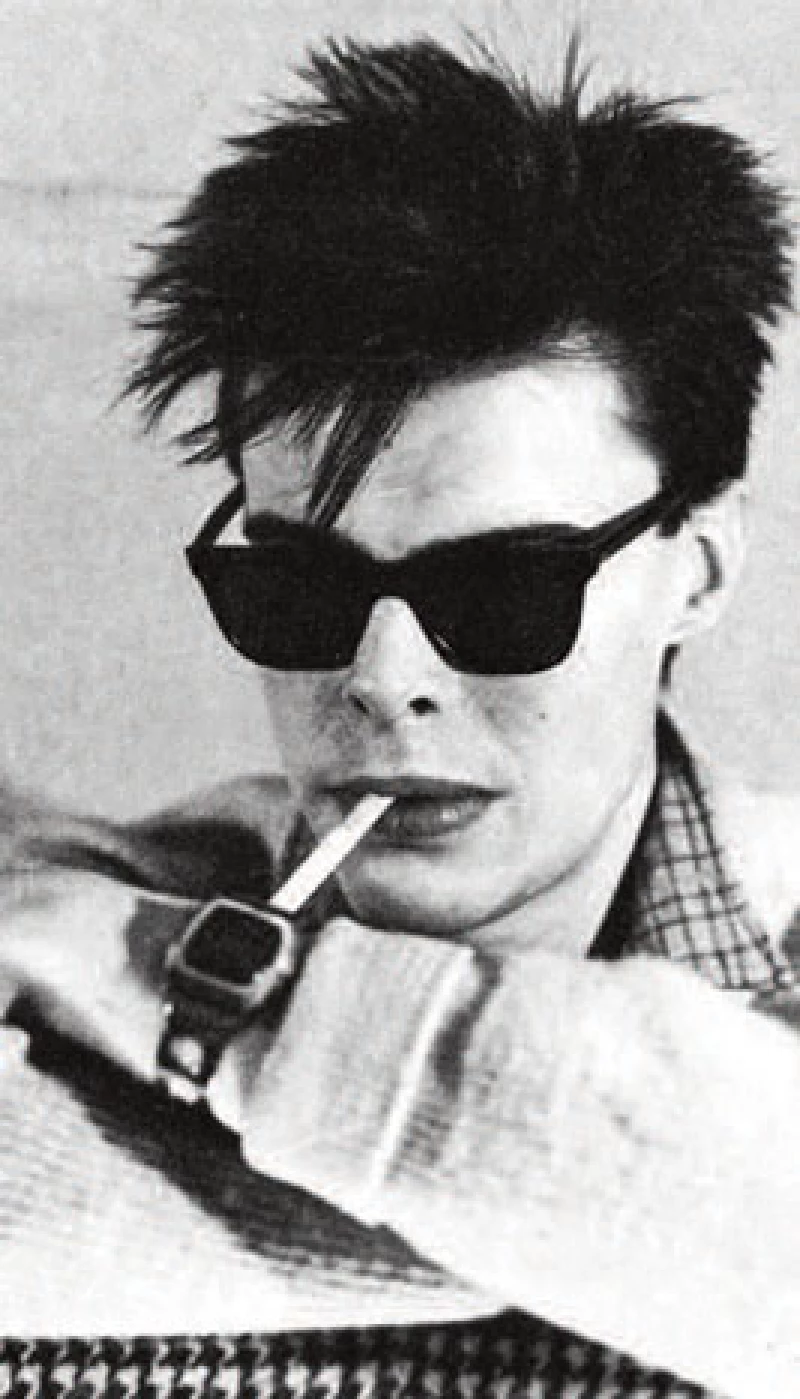
Paul Quinn
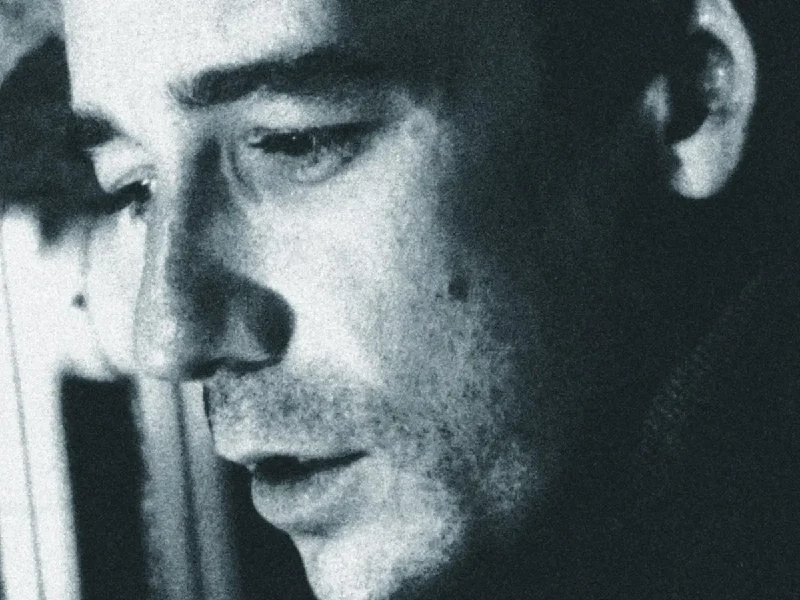
Davy Henderson
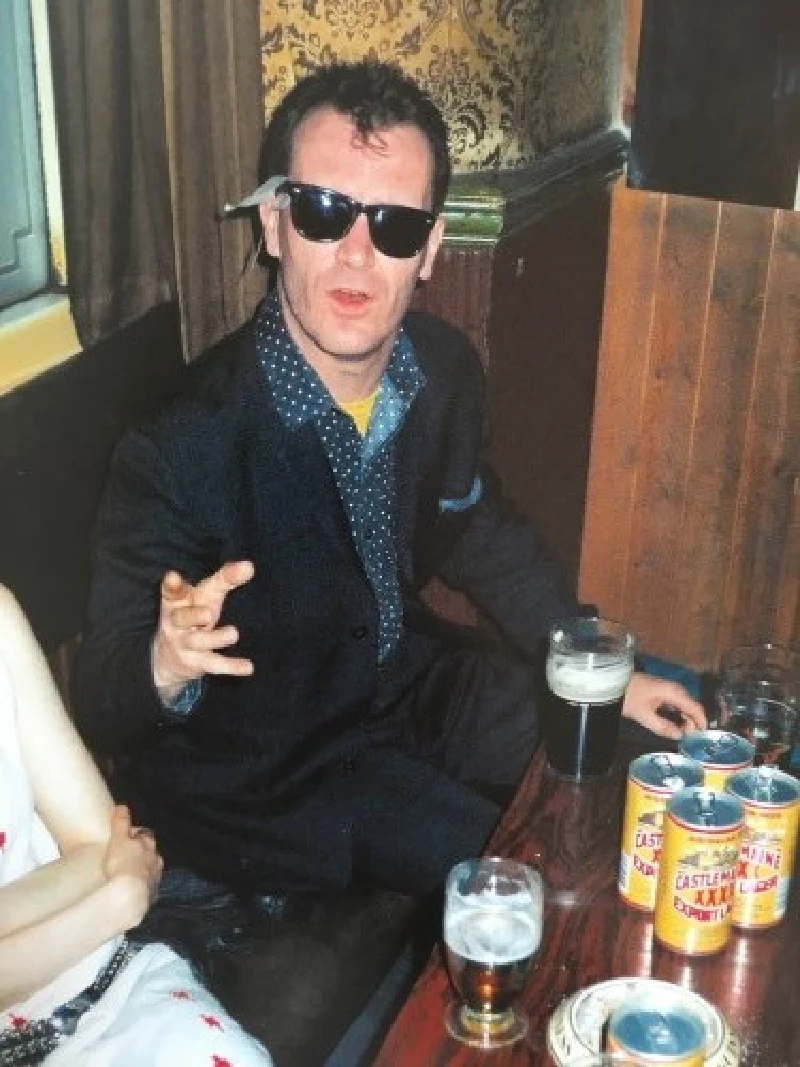
Jock Scot
profiles |
|
Alan Horne After The Sound of Young Scotland 1 (2022) |
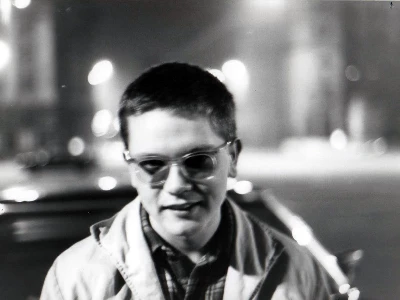
|
| In the first part of a two-part feature on Alan Horne's career after the implosion of his influential record label Postcard Records, 'Big Gold Dream' director and 'Hungry Beat' co-author Grant McPhee looks at his short-lived follow-up label Swamplands. |
most viewed articles
current edition
Screamin' Cheetah Wheelies - Sala Apolo, Barcelona, 29/11/2023 and La Paqui, Madrid, 30/11/2023Anthony Phillips - Interview
Difford and Tilbrook - Difford and Tilbrook
Rain Parade - Interview
Oldfield Youth Club - Interview
Autumn 1904 - Interview
Shaw's Trailer Park - Interview
Cafe No. 9, Sheffield and Grass Roots Venues - Comment
Pete Berwick - ‘Too Wild to Tame’: The story of the Boyzz:
Chris Hludzik - Vinyl Stories
previous editions
Microdisney - The Clock Comes Down the StairsHeavenly - P.U.N.K. Girl EP
World Party - Interview
Michael Lindsay Hogg - Interview
Ain't That Always The Way - Alan Horne After The Sound of Young Scotland 2
Joy Division - The Image That Made Me Weep
Dwina Gibb - Interview
World Party - Interview with Karl Wallinger
Barrie Barlow - Interview
Joy Division - The Image That Made Me Weep
most viewed reviews
current edition
Marika Hackman - Big SighSerious Sam Barrett - A Drop of the Morning Dew
Rod Stewart and Jools Holland - Swing Fever
Loves - True Love: The Most of The Loves
Ian M Bailey - We Live in Strange Times
Paul McCartney and Wings - Band on the Run
Autumn 1904 - Tales of Innocence
Roberta Flack - Lost Takes
Banter - Heroes
Posey Hill - No Clear Place to Fall
Pennyblackmusic Regular Contributors
Adrian Janes
Amanda J. Window
Andrew Twambley
Anthony Dhanendran
Benjamin Howarth
Cila Warncke
Daniel Cressey
Darren Aston
Dastardly
Dave Goodwin
Denzil Watson
Dominic B. Simpson
Eoghan Lyng
Fiona Hutchings
Harry Sherriff
Helen Tipping
Jamie Rowland
John Clarkson
Julie Cruickshank
Kimberly Bright
Lisa Torem
Maarten Schiethart